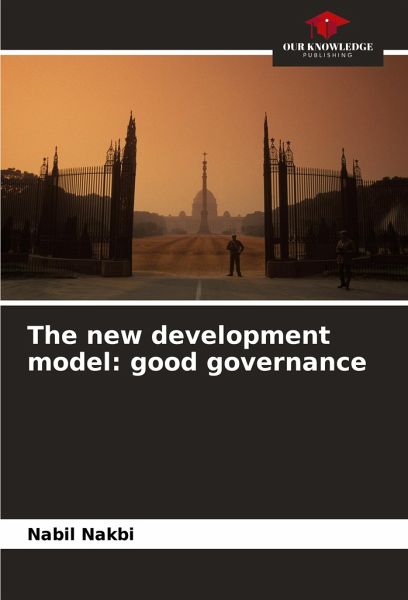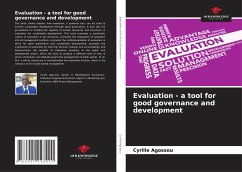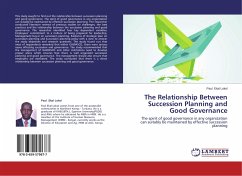
The new development model: good governance
Versandkostenfrei!
Versandfertig in 6-10 Tagen
27,99 €
inkl. MwSt.

PAYBACK Punkte
14 °P sammeln!
This book discusses the concept of governance as a reform that is considered indispensable to solving the challenges of security of goods and people, economic growth, social equity and reform of public administration, while eradicating all kinds of discrimination and corruption. It defines it as the process of interaction by which state and non-state actors design and implement public policies within the framework of formal and informal laws and regulations to promote cooperation and economic and social development, while curbing opportunistic behavior such as tax evasion, unequal distribution...
This book discusses the concept of governance as a reform that is considered indispensable to solving the challenges of security of goods and people, economic growth, social equity and reform of public administration, while eradicating all kinds of discrimination and corruption. It defines it as the process of interaction by which state and non-state actors design and implement public policies within the framework of formal and informal laws and regulations to promote cooperation and economic and social development, while curbing opportunistic behavior such as tax evasion, unequal distribution of wealth, and clientelism. It also refers to corporate governance involving a set of mechanisms (internal audit and risk management) implemented to structure, frame, and control the actions of corporate leaders in the face of new economic, social and environmental challenges. Finally, it also shows that governance is part of the sustainable development framework, hence its importance as a new development model.












